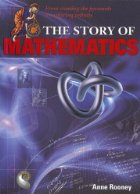
VS
For a long time I have wondered about fashion and magazines and reading time and beautiful photography and prices and old media versus social media and also what to wear today. All these concerns intersect in my world.
So - for starters, if you are reading books, you don't have time to read magazines and vice versa. That's hard for me, right there.

Then, the fancy fashion magazines are great for photography, but don't really help you decide what kind of shoes to get this fall, and when they do indicate what kind of shoes to get this fall, I find I am not keen to spend the $950 it takes to get them. (These are Gucci, and they are great, I must say, but who is able to afford that? How can one follow advice to buy these?)
And also, I don't care what any fashion magazine has to say about issues. Not any issues: not clitorectomies; not body image; not art: not arts funding; not what men want; not how women combine work and motherhood; not what Michelle Obama is wearing today. Can you honestly say you care? I'd rather read about what Elizabeth Bennet is wearing, or Katniss, or Frankenstein's monster.
(Worth it, right?)
NOT ANY ISSUES. Actually, this is my main media concern, social and otherwise. I don't care what any people I DON'T KNOW think about any ISSUE. It's boring.
I once read (probably) that the reader is the product sold by the publication to the advertiser. Check that again. The READER is the PRODUCT SOLD BY the PUBLISHER TO the ADVERTISER. True. Also true for all televison, and quite certainly some movies and books. If that does not disembowel one's respect for content, nothing can. It's a frame as old as Latin: Cui bono? Who benefits?
When I was a kid, I loved magazines, started at 13 with Seventeen magazine, (I actually remember this cover), graduated to Vogue and the New York Times Sunday edition at 16. I have had to continually edit my collection of torn-out reference pages to bring it back to relevant and also to prevent drowning accidents. See comic below.

I've posted this brilliant Wondermark comic before, and I will help my children mutate to live as bibliophibians but not as ... uh ... magazinophibians ... journophibians ... cartophibians...I think you get my drift.
But for the past 10 years I have increasingly felt a gap in the area of my brain that used to derive pleasure from following fashion in magazines. I still love clothes - love designers - love buying clothes (and art) from artisans who are not only theorizing but touching and making the product with their own hands. But magazines...nada. A couple are OK–Lucky and LouLou come to mind–practically no stories, affordable realizable fashion, but they still have pages and pages and pages that are not interesting to me, like all that advertising which is really what pays the bills. The entry price of the magazine is to provide tangible proof to the advertiser that future consumers of their product will actually see the ad. And now even they can hardly give them away on paper. (I mean, a $3 subscription?)


That brings us to the solution: Pinterest. I follow both these magazines on Pinterest.
I sell Pinterest to all my friends as a magazine you curate yourself. Curation is the buzzword of culture these days, and here it is again. I find streams and content that sync well with my tastes and interests. It flows past easily, and in 2 seconds I can fish out content and place it an organizational structure that has meaning for me. (Funnily, tagging is not part of it. Pinterest is for visual people, not book people. Words are not important. Images must be repinned to appear in two places, advantage is not taken of the infinite ability of one image to appear via its tags in 20 categories – actually the board IS the tag.)
Pinterest has revitalized the fun of getting dressed in the morning, of shopping for white jeans, of checking thru my mother's jewellery box for vintage brooches. It makes it feel cool to support and celebrate a local designer with little media presence...without the time-wasting of pages full of ads, full of current-paradigm issues, full of commentary, full of images for the otherwise inclined.
Plus, it gave me the nerve to buy spray paint for some storage tins, and make a small macro photography studio, and find the right glues to properly repair things around the house, and make little presents with my kids by hand...
In addition (she lectures on and on) Pinterest is safe - populated mainly by non-predators (shall we say); the social contact is actually minimal as there is little or no chat space; the social and political content is negligable. I don't worry about my kids collecting pictures of hedgehogs, or dollhouses. They may run into the f-word or tatts or men's chests, but that's about the limit. We can talk about it. They won't be shocked.
Finally, there are some fun infographics about what good business it is to appear on Pinterest - more click-thrus to purchases than on any platform, more time spent per user, more actions per user etc and this compared to Tumblr (OK) Facebook (bleh!) and Twitter (bleh!), for example. It's the new asses-in-seats, and I recommend you get it while it's hot.
The marigold wonders nervously if she should include links to said infographics? They change all the time, and the summary is stated...











































